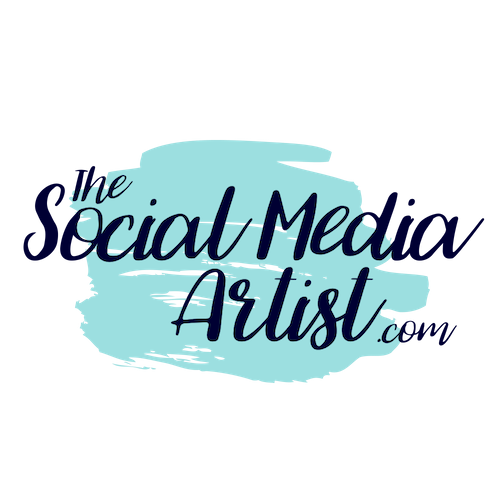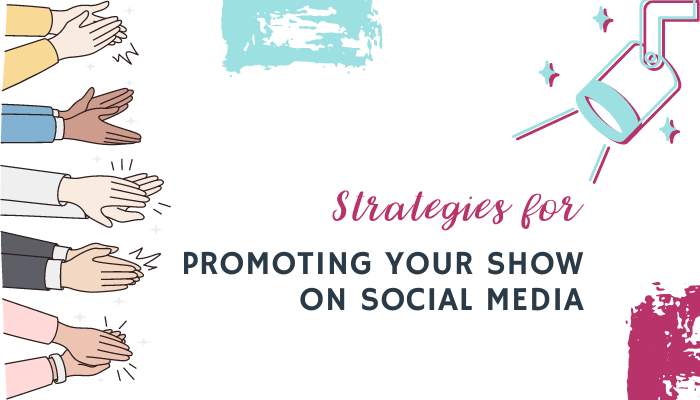Introduction
Social media can be a powerful tool for building buzz around your show. It’s also a great way to reach people who wouldn’t otherwise know about you. But if you don’t have time to manage your social media strategy, it may not be worth the effort. The key to making social media work for you is to set up your own personal automation system so that when something happens, you get an alert and can take action right away!
The number one rule of thumb when promoting your show is to start early.
The number one rule of thumb when promoting your show is to start early. If you start early, it gives you time to test out different strategies and experiment with what works for you. This will also give you time to build up some excitement for your show before it airs. You’ll want to be able to tell people about the release date and make sure that they know where they can find it!
You should also try getting involved in social media communities related both specifically and tangentially related areas. For example, if I were writing a sitcom about two friends named Claire and Danny who run a coffee shop together, I would join groups on Facebook like “Coffee Shop Owners” or “Coffee Lovers.” These groups may not be as huge as something like Comic Books as a whole but they can still reach people who are likely interested in my show!
Write a great pitch for your show.
When promoting your show, you’ll often find yourself with the task of writing a short, catchy headline. This is the most important part of your pitch and should be concise, informative and engaging in order to get people’s attention.
- Include the show title and dates (ex: “The Great Gatsby at Theater XYZ”)
- Include the venue (ex: “Theater XYZ”)
- Include ticket prices (ex: $15–20)
- Include time/location information (ex: 7pm–8pm Saturday Jan 14th at Theater XYZ)
Start by making a poster that includes all the information people need to know about your show.
Start by making a poster that includes all the information people need to know about your show, including:
- The date, time, and location of your event.
- A catchy title for your event.
- An image that visually shows what you’re promoting (for example, if it’s an art show, include a photo of an artwork).
The idea is to grab people’s attention with something visually appealing so they’ll want to learn more about what you’re doing. The more professional and clear your poster looks, the more likely people will want to come see it in person!
Start a Facebook event and invite all of your friends.
Facebook events are a great way to promote your show. You can use the event page to promote ticket sales, or you can create an event for free shows so that people who aren’t familiar with your work know about them.
You’ll want to include a link on your event page that takes users directly to the ticketing site or your website, so they know where they need to go in order to buy tickets.
Share your social media posts as often as possible, but don’t annoy people.
You don’t want to annoy your audience with too many posts, but it’s also important to show that you’re actively working on your content. If you post very infrequently, viewers will assume you aren’t doing anything and will lose interest in your account. To maintain a healthy balance of posting frequency, try posting five times a week at most. In between those posts, share other relevant information that isn’t related specifically to the show (behind-the-scenes photos; personal stories).
If people are tired of seeing only one kind of thing from you, they might unsubscribe from your channel or stop following along on social media altogether. There are plenty of different types of content—try mixing things up so that each social media platform has its own unique feel (for example: use more photos on Instagram than Facebook).
Consider creating a hashtag for your show.
Now that you’ve got a show, it’s time to promote it on social media. While you might be tempted to jump right into creating a Facebook page, Twitter, TikTok and Instagram feed for your show, remember that creating a hashtag can help people find your work more easily.
To create one, ask yourself this question: what are people going to say about my show? If the answer is “it’s too long,” then you should probably rethink your idea. But if the answer is “this is hilarious” or “I love all the characters” or whatever else comes up during your brainstorming session, try turning this into a hashtag using these steps:
- Make sure it’s not already in use by another company or person. This may seem obvious but just wait until someone else has used “#FunTimesWithCandiceAndKirby” before you get started on yours!
- Keep it simple—you don’t want people having difficulty remembering how they found out about the show in the first place!
Post reviews of your show on Instagram or other social media sites.
As a playwright, you have likely seen the importance of reviews. Reviews are an opportunity to share your show with people who haven’t seen it yet, as well as a way to thank fans who have supported you by seeing the performance.
If you’re running a show that has been produced before and is being revived in another city or region, consider posting reviews from previous productions on Instagram and other social media sites. You can also gather friends or family members who have seen the production previously and ask them for their thoughts about it so that you can post their feedback online as well.
Create link-backs from outside resources to drive traffic to the url you want people to visit (the event page or ticket sales page).
Here’s how it works:
- Create link-backs from outside resources to drive traffic to the url you want people to visit (the event page or ticket sales page).
- For example, if your show is about dogs and you have a blog on dog training, create an article on your site titled “Tips for choosing a good dog trainer” that links back to your show.
- Or if one of your sponsors is a pet supply store in town, they might want to create a coupon code just for people coming from their website. They will then post the code on their site and promote it on social media.
- Link-backs work best when they are written by someone who has expertise in the same subjects as your content but aren’t directly involved with promoting it online themselves.
Build buzz with contests.
Contests are a great way to build buzz, and they’re especially effective if your prize is something related to your show. For example, if you’re promoting an improv comedy show, give away tickets or free passes. You can also set up a social media contest with the prize being tickets—just make sure it’s easy for people to enter by tagging the post in their own post and including the hashtag #ContestEntry. Don’t make it too complicated or time-consuming; just ask them to tag themselves once on Twitter or Instagram. This will help you grow your following because users will be exposed to the content of others who’ve already entered (and possibly shared) this same contest!
A successful social media marketing strategy can be simple and not time-consuming if you make it easy for yourself by getting ahead of it and automating some processes!
In order to be successful, you need to be consistent and get ahead of your social media marketing. You can do this by using tools like Buffer or Hootsuite that allow you to schedule posts in advance, so that all you have to do is post and forget about it! Also, if you’re not sure what kind of content people want from your show, just ask for feedback. If people are responding well to one type of post over another then keep doing more like those!
If there’s a trend in the industry or news that could benefit your show’s audience, make sure they know about it and add it into their feed somehow! Don’t just stick with what works though—you need to stay on top of new trends so that when they come out next time around they’ll still be relevant enough for people who weren’t paying attention before (because who has time?).
Conclusion
As you can see, promoting your show is not complicated or time-consuming. The most important things are to start early and be consistent with your efforts. If you do those two things, then your social media strategy will work for you!

